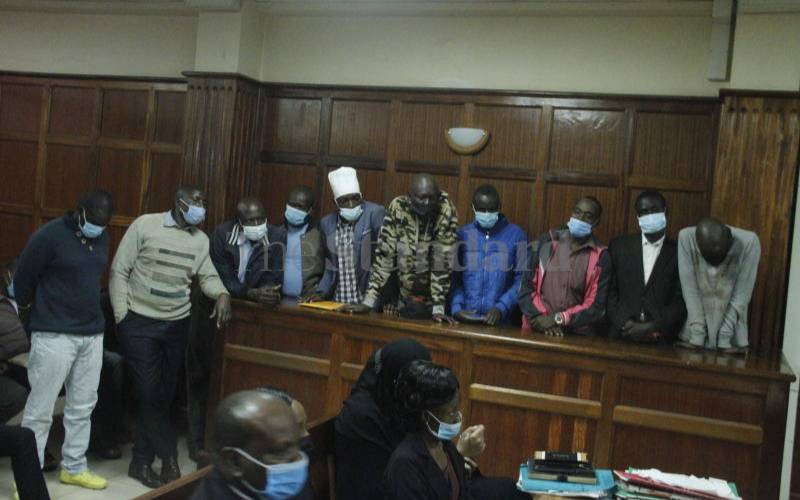×
The Standard e-Paper
Fearless, Trusted News

Members of Sowesava self-help group who had been previously charged with malicious damage to property for demolishing a perimeter fence around the parcel of land situated in Donholm belonging to Gidjoy Investments Limited. [File, Standard]
A land registrar has told the court that a property valued at close to Sh1 billion at Donholm, Nairobi belongs to Gidjoy Investment Limited.